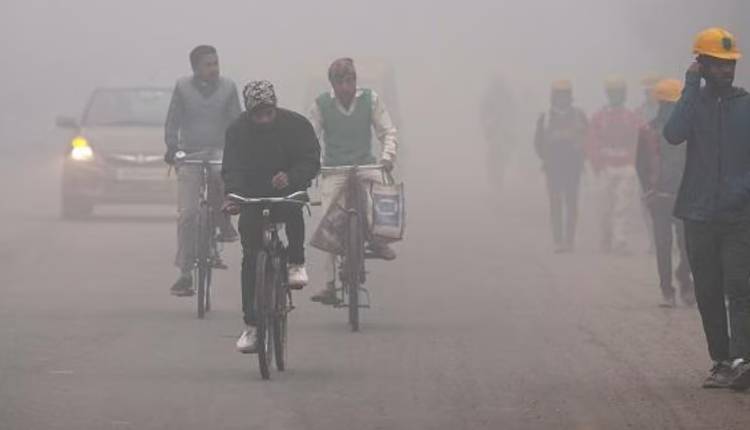New Delhi: With December’s last days repelling with freezing temperatures, the very act of getting out of our cosy blankets every morning feels like a victory in a battle. Winter has marked its presence for sure, with the strong currents of the icy wind that made us shudder and the streets full of fog that portrayed winter’s true colours.
But have you ever thought of the paradox of winter? There are always two kinds of people: the ones who are complaining about how cold it is—”It feels like the world is going to freeze!”—and those who are smiling and replying with the kind of sentences that students love: “That’s not too bad.” All of this makes me wonder: On what basis do some people feel cold while others feel fine? Is this occurrence related to the individual differences in physiology only, or is there some deeper, more scientific explanation for it?
First, we have to examine what is cold actually. During winter, temperatures are progressively falling. The average temperature of a normal human body is about 37°C or 98.6°F. Instead, environmental temperatures fluctuate, and sometimes they are found to be only 5-6°C above the freezing point. That is to say, the temperature outside is lower than what we normally have in our body.
The process of regulating body temperature is the responsibility of the hypothalamus, a very small segment in the brain that enables the exchange of information between the nervous system and hormones. It is also in charge of our heartbeat, temperature, appetite, thirst, and even our emotional state. The hypothalamus observes our temperature level and compares it with the one that is outside. If there is no symbiosis, our body loses the heat, and this is what causes us to feel chilly.
But why do not all the people feel the cold the same? There are five important scientific reasons for this:
Basal Metabolic Rate: Physically active persons, such as those who do yoga or exercise regularly, feel less cold generally. Their muscles are working all the time, and they burn energy, which means they produce internal heat. On the contrary, sedentary people feel the cold even more.
Body Fat Distribution: Those with lower body fat distribution are very sensitive to cold due to the fact that fat serves as an insulator. On the other hand, people with more body fat are more resistant to low temperatures due to their insulation.
Genetics: Genes are a factor that affects the perceived cold. The mechanisms of some individuals’ bodies are more efficient when it comes to regulating temperature compared to others’.
Hormonal Changes and Age: Women may observe that they have a greater-than-usual tendency to feel the cold during their periods or menopause due to hormonal changes. In addition, as we become older, it becomes more difficult for our systems to keep temperature balance, and because of that, older persons become more sensitive to cold.
Health Conditions: Besides that, individuals suffering from other medical conditions also have to deal with the cold, unfortunately. For instance, folks suffering from hypothyroidism, anaemia, or Raynaud’s disease usually experience cold in a much more aggravated way.
Hypothyroidism: A thyroid gland that is not functioning properly causes a slowdown in the body’s metabolism, which in turn results in increased sensitivity to cold.
Anaemia: Not enough iron in the blood will prevent the body from receiving oxygen, which, in turn, will make the body feel cold.
Raynaud’s Disease: This condition means that the vessels of the blood in your fingers and toes will be unable to take you to normal temperature, resulting in a warm feeling.
As we investigate the reasons that some feel colder than others, it becomes evident that a variety of factors influence our perception of temperature. Knowing these facts can be advantageous in the form of new techniques for us to survive the winter chill and possibly even discover ways to keep our bodies warm in the coldest months.



Comments are closed.